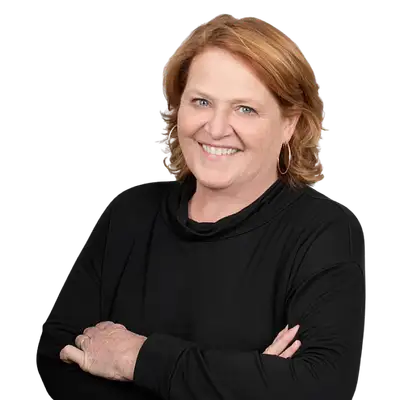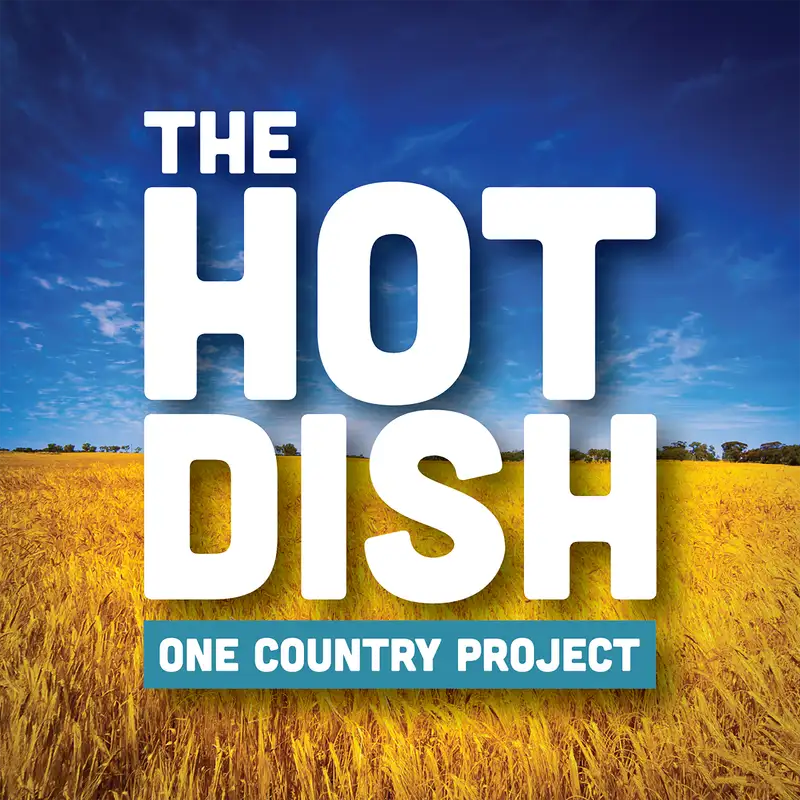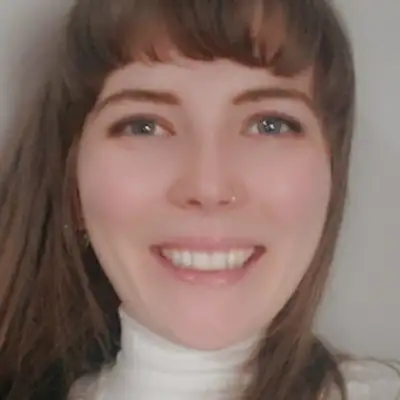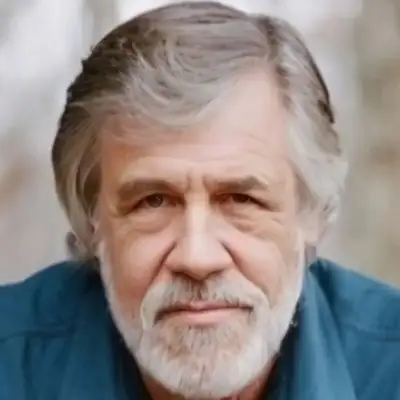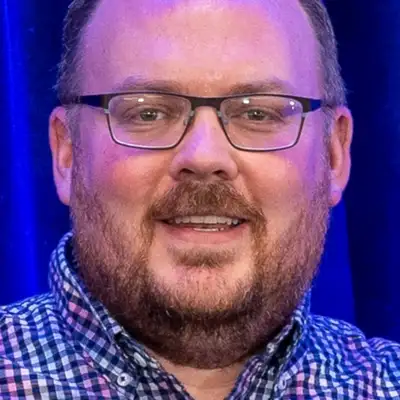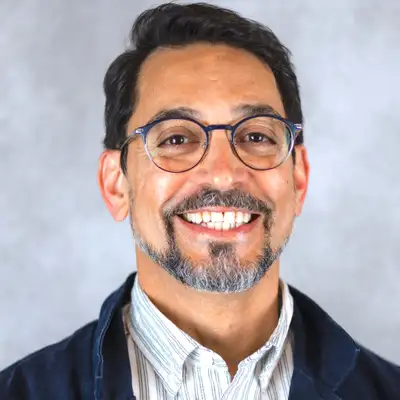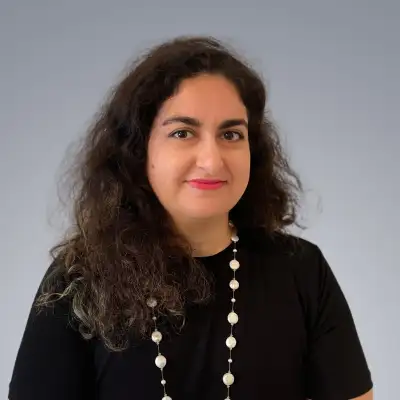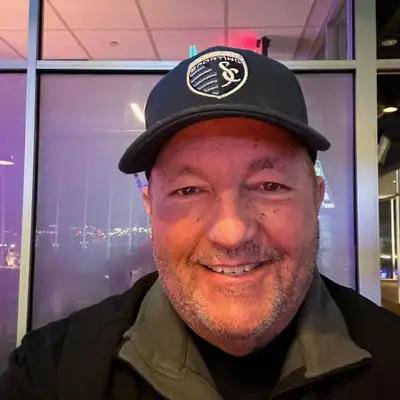What Farmers are Saying
Heidi Heitkamp [00:00:04]:
Welcome to the Hot Dish comfort food for middle America. I'm Heidi Heitkamp and here at One Country Project, we aim to give a voice to rural America. My co host, and sometimes, I'll admit it, brother Joel spoke with three farmers for our episode today. Nick Levandosky, Will Westmoreland, and a veteran Hot Dish guest, Chris Gibbs. These farmers shared with Joel the difficulties they face, including tariffs, infrastructure fallout and more. Let's get to that discussion.
Joel Heitkamp [00:00:40]:
Hey, everyone, welcome to the Hot Dish. I mean, we have a roundtable today that's going to be absolutely fabulous. We really do. We're talking farming. That's right. I'm here with three farmers for this Hot Dish first ever roundtable discussion. Joining me are Chris Gibbs, Nick Levendofsky, Will Westmoreland, all are on the show today. Let me make sure. Chris, good to have you on again, bud. How you been?
Chris Gibbs [00:01:04]:
Hey, real good. Thanks for having me. Good times.
Joel Heitkamp [00:01:07]:
You bet. Nick, how you been?
Nick Levendofsky [00:01:09]:
I've been good, Joel. It's good to be with you today.
Joel Heitkamp [00:01:11]:
How you been, Will?
Will Westmoreland [00:01:13]:
I'm doing great. Thanks for having me on. I appreciate it.
Joel Heitkamp [00:01:15]:
You know, let's do it one at a time. Let's start with you, Will, tell people about your background in farming and what your experience has been.
Will Westmoreland [00:01:23]:
I grew up on a cattle farm in Missouri. We raised whole seam calves into heifers and sold them. And part of my experience being on that farm was a really serious farm injury that I incurred at the age of 12. I got my arm caught in the power takeoff on a tractor. And one of my recommendations is don't ever wrestle with the power takeoff on a tractor. You'll lose every time. But it also, at a really young age, gave me more experience than I wanted with the rural healthcare system. So that's near and dear to my heart. I spent a lot of time in the corporate world traveling and came back home to Missouri many, many moons ago and farmed a 300 cow/calf operation with my stepdad and mom and eventually moved into specialty cropping. So right now we raise Chinese chestnuts, blackberries, mushrooms, and we're getting ready to get into the milling of Chinese chestnuts for gluten free flour. So we do a little bit of different type of farming than a lot of other people.
Joel Heitkamp [00:02:21]:
Interesting. And I think you're right about the PTO. You know, don't get in a fight with one. Nick, tell us about your experience.
Nick Levendofsky [00:02:28]:
I grew up on a crop and beef cattle farm in north central Kansas, Republic County, Kansas. Our family, the Levendofskys, have been farming there since 1869. My dad is fourth generation. I don't claim to be a farmer because that's not my full time job. But I'm really proud of the fact that I've worked for farmers at Farmers Union since 2011, both starting here in Kansas, then moving up to Wisconsin, up in 2016 to do government relations work for them in Madison, then out to Rocky Mountain Farmers Union in 2018 and did a lot of legislative work on the state and federal levels and then in 2022 called home to Kansas to be the executive director here at Kansas Farmers Union.
Joel Heitkamp [00:03:12]:
Chris, the man they call traitor on the right. Tell us about your background, Chris.
Chris Gibbs [00:03:18]:
Well, there's a good setup. Yeah, yeah, traitor, that's for sure. Tell you what, I'm a first generation farmer and when I was about 13, Mom and Dad said, 'you know, this boy is going to get in trouble if we don't take him to the farm.' So they bought 80 acres and, and took me out there and I decided that I wanted to be a farmer. In 1978, my wife and I were married. We started from scratch in 82 or 83. Two year old daughter, $2,500 and a pickup truck and we've grown that to own and operate 560 acres now. So corn, soybeans, wheat, pretty traditional. And we've got 90 beef cows, mama cows, which are going to start calving here in another few weeks somewhere in between there. I spent 30 years and four days at USDA as a county director for the Farm Service Agency in a neighboring county. So that's kind of my experience there. Also work in politics. Spent 20 years in Republican politics, administration seven of that as Chairperson. Left the party in 2019 and it's important for the discussion just because I left over trade in Helsinki, ended up, believe it or not, as Chair of the Democratic Party in my county in 2023. So I've been advocating for better farm policy all along.
Joel Heitkamp [00:04:34]:
Thank you, Chris. I'm going to ask a couple of questions and, and let's get your take on it. First off, the state of farming today. Obviously it's just day to day. Everybody's looking at the markets, everybody's looking at these tariffs, where we go from it. Number one, is it exhausting? And number two, where do you see it going? Is there any way to predict it? I'm going to head to you first, Nick, on that.
Nick Levendofsky [00:04:59]:
Well, Joel, it is exhausting. It's like drinking out of a fire hose most days and it just continues to add to that uncertainty. That we're already dealing with. I've said it time and time again in these interviews, is, you know, farmers are dealing with some of the lowest commodity prices that they've ever dealt with. They're dealing with some of the highest input costs that they've ever dealt with. We've got inflation, we've got extremely high land prices that just keep going up and up and up. So the odds are against us, it seems like, and this administration isn't helping with that. But it's good to have these conversations, too, so that we can, you know, find some of that hope and build on it.
Joel Heitkamp [00:05:39]:
Will, I'd love to get your take on this, you know, just how exhausting it can be. But most importantly, where do you see this going? What's the end game here, if there is one?
Will Westmoreland [00:05:50]:
Right. I got to tell you, I agree with everything Nick said, and I think that community in rural America is really under attack. So you have all of this uncertainty out there, but then you've also got the rug being pulled out from under farmers and ranchers in regard to the programs that help us allocate for that uncertainty. Right. So what is it Kennedy said? 'We don't control the price of our inputs, we can't control what we sell our products for, and we have to pay freight both ways.' Well, in the past, we've had some really good programs that have been put in place that have allowed us to mitigate for that to a certain degree. And the administration is cutting those programs that drive that mitigation. On top of everything we're facing as farmers and ranchers, they're trying to pull the plug on us, you know, from a rural health care perspective by cutting Medicaid, which funds, you know, 50% of the health care for kids in rural America. And then finally, these tariffs are cutting off markets for. So we don't even have, you know, the markets to try to go make up for some of this uncertainty with deep water. And I think where it's headed to, I don't want to sugarcoat it. If everything keeps going the way it is now and we don't get some pushback from the courts and from Congress, I think it's headed in a really bad direction for small farmers and ranchers.
Joel Heitkamp [00:07:07]:
I think lost in all this, guys, is the fact that things weren't that great before. Before the election, we already were looking at lower commodity prices in home country here. And then things got incredibly worse. And, Nick, I don't know if that's what you found in your backyard.
Nick Levendofsky [00:07:25]:
It is Joel, that's exactly it. You know, things were not all rose colored glasses and, and rainbows and puppy dogs. Things didn't look good going into the November election. And that's probably why many people made the decision that they did when it came time to vote. Our current president made a lot of promises and you know, said things are going to get better and all that. Well, everything's headed south ever since then. And he says, you know, we're gonna go through some pain and it's gonna be short term. Well, what's their definition of short term and what's their definition of pain? And you know, just today the news saying that, you know, he's gonna put more tariffs on steel and aluminum and you know what goes into a lot of farm equipment? Well, steel and aluminum, these are the kinds of things that are gonna be pushing further and further down on the backs of farmers and ranchers and rural communities.
Joel Heitkamp [00:08:17]:
Well, and I'm going to kick it to Chris on this one because I follow you, Chris, on social media and I hear you talking about some of the different things where you can more personalize what's happening with your expenses. Potash being one of those, you know, obviously farmers need it, it comes from Canada. Give people your take on what these tariffs are going to do.
Chris Gibbs [00:08:40]:
That potash is kind of a near and dear to my heart right at the moment because I'm embarrassed to say that I wasn't able to take advantage in Ohio of early discounts just because I didn't have the cash flow for it. So I purchased everything else, held off on potash purchases. And 80% of the potash that comes into this United States comes from Canada and I haven't got that bought yet. I'll buy it before spring. But now, gee whiz, I don't know, is the tariff today, is it on or off? I don't know what it is. But if we're going to add 25% to that, that just adds 25% to my cost and my bottom line. And for your listeners, this is important because at these regular row crops we are at or below cost of production already. And if I take a resource that's one third of my fertilizer inputs on a, on an annual basis and that goes through all three crops and am I already at cost of production? I'm going to end up losing money here and that's just not sustainable for US Agriculture. We can't continue at cost of production and then have an administration put on tariffs to make our expenses higher.
Joel Heitkamp [00:09:56]:
I'm going to tell you guys a story. I got a buddy that I served in the state senate with. He's got a trucking outfit and he runs up to Canada and back. But he, he knows a border agent there and he's not gonna give out his name to me because he didn't wanna get the poor guy fired. But the agent talked to him about how somebody from North Dakota bought an air seeder and they spent over $900K on the air seeder. Bought it. It's already bought. He was gonna go up to Canada and get it across that border. They told him, nope, you got a 25% tariff. So rough numbers. He's looking at an additional $225,000. And they said, no, you got to pay that. I mean, Nick, this is the type of thing that people don't realize. Every farm's a small business. Yeah, he didn't expect that, Nick.
Nick Levendofsky [00:10:43]:
Exactly. And you know, that's a major example right there, Joel. And I think that's something that needs to be shouted from the rooftops. What a hit you are purchasing something that's worth nearly a million dollars and then you get a nearly quarter million dollar bill just to get it across the line. I talked to a friend of mine the other day that works in gps, you know, for ag, and they, they had a component that went down on them. The only retailer they could get it through was Canada. Well, guess what? You know, that $7,800 piece of equipment then became about a $9,500 piece of equipment. You add that on top of what we're already dealing with inflation, and it's, it's maddening is what it is.
Joel Heitkamp [00:11:25]:
Will, do you think the American people get it?
Will Westmoreland [00:11:28]:
I definitely think that there's a large cross section of the American people that do get it. And I think that farmers and ranchers are starting to get it as well. I try to be really non-confrontational in my approach. I've got this new slogan that I've learned that says, 'We're not asking you to admit that you're wrong. We're just asking you to admit that you were lied to.' Because that's an easier journey for a lot of farmers and ranchers and frankly, men in general. Right. I do think they're starting to get it though, because farmers and ranchers don't like uncertainty.
Joel Heitkamp [00:11:58]:
Well, I've seen some of you guys work and just so impressed, you know, as, as a regional talk show host, you try to glean off of, you know, some of what other people are doing to try to make the argument or get the discussion going. And, and when you inject common sense and you inject numbers and, and just flat out fact into it, it still doesn't at times seem like it works. And to me, that's the frustrating part. I've seen your work. I mean, I've seen you in a calm, deliberate manner, you know, just say, hey, here's where the facts are. And Chris, I've seen you do the same thing. You know, just what are you hearing at the Cenex when you go in and you grab a cup of coffee?
Chris Gibbs [00:12:41]:
Chris, you know what? Things have gone a little bit silent. It was pretty robust before that. Here comes the Trump administration. He's going to lower all these regulations, there's going to be nirvana in agriculture, et cetera, et cetera. It hasn't changed in the discussion, although the discussion has gone quiet. And that's fine because that gives folks an opportunity, like myself to interject. And by the way, I appreciate Will and his, his approach here because it's not going to help to engage our farmers in a pejorative fashion. We have to engage them one on one. And for me, it's about demonstrating to these farmers and these MAGA voters in any place that we have shared values. My values, freedom and justice and liberty. Two cars in every pot and a chicken in every garage. Okay, maybe that's different. We all believe in those values things. And so this is an opportunity, while these farmers are now listening and paying attention and silent for a moment, to really have a discussion about values and say, hey, let's now talk about what really matters to you. And so I think we got an opportunity here. Will's right.
Joel Heitkamp [00:13:58]:
Well, I, I don't doubt that. And I think you're all right about that, that, that calm, you know, conversational approach. I mean, I don't dispute that whatsoever. But every day when you, you, you are in front of it for three hours and you're talking to people about it, and it's so frustrating, Nick, when you point out that something that the administration says is a lie and you can't get past the fact it's a lie and they, they won't go to the facts. And I don't know how you're getting around that, but for me, I try to keep my calm, I try to be a better person, but it isn't always easy, Nick.
Nick Levendofsky [00:14:41]:
It's not easy, Joel. And you know, there are so many from our communities and across this country who have bought into what this administration was selling. And, you know, it's happening in our own families. We at the end of the day have to live and work together so that we can have a better future at that local level. So it takes some time, it takes some listening. You've got to be willing to sit and listen, but they also have to be willing to listen too. So I've always said you can't reason with unreasonable people. And I like to think that in especially where we live and work and farm that most of us are pretty reasonable people. You've just got to find a way to get over those hurdles.
Joel Heitkamp [00:15:22]:
I'm going to throw this at you, Will. Do you think that some of this could possibly be an attempt to pour ag producers down, to get them to where they're not very fluid when it comes to their money and then pretty soon the thing that you all value the most, which is your farmland, is in danger, that you can't hang onto it?
Will Westmoreland [00:15:42]:
Well, I do, I think the question for me comes down to is it intentional or is it just a net result? And in the end I don't think that matters because the same thing is happening either way. And listen, I guarantee you, all four of us, at some point when we were young, we either heard our dads or our grandfathers make some version of the comment, 'They have us fighting for crumbs under the table while they're eating steak up above.' Am I wrong? Did you not hear some version of that growing up?
Joel Heitkamp [00:16:10]:
Yep.
Will Westmoreland [00:16:13]:
And that's something almost any farmer or rancher, regardless can grab hold of. And, and that's a common ground we can all start from. Not long ago there was a farm, 178 acres. And you had a lot of farmers that showed up to buy that it was good row crop land. And they had gone to their bankers and said, I'm going to need about 1.2 million in financing to get this land. Can you back me? And several of them had banks that would back them. Well, here came one of these Wall street farmland investment companies and bought it for over $5 million as a long term investment. So whether it's intentional or not, whether there's some kind of wizard behind the curtain making it happen, the net result is the same. Joel. So I do agree with that.
Joel Heitkamp [00:16:58]:
Well, and I want to take this same question to you, Chris, maybe phrase it a little bit differently, which is Project 2025 actually directly goes after federal crop insurance. If you take that away from my ag producers, they're done. I mean, they're done. There's no local, you know, you guys are down in Oklahoma. And National Farmers Union Insurance is not jumping up to provide crop insurance to my farmers unless they have the backing of the federal government. And that, to me, this administration seems to be following the plan of 2025. Which then leads me to the same question to you, Chris, which is this an attempt to put farmers in a position where they no longer can afford their farmland?
Chris Gibbs [00:17:45]:
You know, I'll tell you what, I'm not willing to go that far. I'm a little bit more optimistic, actually, a lot more optimistic than that. There's no doubt of a couple facts. There's no doubt that there are investment companies, private equity, that are purchasing land. Okay. Is it in the amount? That would make a huge difference. I don't think we can make that case yet. You know, certainly 97% of the farms, all farms in the United States are still family owned. They may be big families, but they're, they're family owned. On the crop insurance issue, Project 25, absolutely. It talks about lowering the subsidy, the federal subsidy for crop insurance, which will make, I've done the calculation, crop insurance 35 or more percent more expensive to, to the farmer. Okay, so what does that do? Will I pay that extra? I probably will, but not everybody will pay that extra 35%, 36% more to insure their crop. So what's going to happen is that there will be more land that's uninsured, and if it's uninsured, it all of a sudden becomes ineligible for most, if not all, USDA programming, including disaster programming. So you can make a case that that puts a farmer has a lower equity base. You can make the case that that is detrimental to him or her and that farmer could lose their land.
Joel Heitkamp [00:19:15]:
Well, Nick, I didn't say black helicopters, but he's right. I drew the image. But let me ask you this, because I remember the 80s really well. I remember the emotion, I remember the suicides. I remember everything that went along with it. And so, Nick, are farmers fearful that the thing they value the most they could potentially lose, which is that farmland?
Nick Levendofsky [00:19:37]:
Yeah, I think there are some who are, Joel. I think they're, they're very much on high alert, especially those that are highly leveraged right now, and many of them are beginning farmers. Some of your more established farmers that have been at this for a while, they're probably going to have enough cushion that it's going to, they're going to be okay. They're. There are, are plenty of men and women who are farming that are in this situation, but those are the ones that I, I see have the most concern right now because they are so highly leveraged. That banker isn't loaning any more money out right now because the projections are not good on commodity crops. If you're in the cattle business, things are looking good if you're a seller, if you're a buyer, look out. Just the other day in Belleville, Kansas they sold, you know, two day-old calves at a thousand bucks ahead. Day-old calves. So you know, if you're selling in the cattle market, you're doing pretty good. But if you're buying it's, it's a hard market to get into.
Joel Heitkamp [00:20:35]:
So I'm an infrastructure guy from the old days. For 23 years I managed a real water district and that real water district had over 2800 miles of pipeline. So pretty substantial. The point I'm trying to get to is infrastructure has always been the key to rural production. Whether now we're talking about broadband, whether we're talking about water, whether we're talking about roads, all of that. The infrastructure situation seems to be in real danger. And I'm going to head to you will on this. I mean, where do you see rural infrastructure going? Because without it, those farm to market roads for example, we're all pooched.
Will Westmoreland [00:21:16]:
I think we just saw this right with the freezes that were put on these conservation programs, et cetera. Nick and Chris probably know all about this, but I've never been a row crop farmer, so I didn't realize. We've got places all over the country, particularly in Ohio and Illinois and Indiana, where we've got drainage systems under our farmland that have carried off excess water since the late 1800s. And in Moline, Illinois they had lined up an agreement with the federal government to replace all of these drainage ditches that were falling apart because it improved crop productivity. And then all of that was put on hold and that infrastructure, it had to be replaced. So the city and the county had to come up with all that money themselves. And it wasn't budgeted ahead of time. And you just take that and multiply it program after program at, at the farm and ranch level. These are investments that farmers can't pay for by themselves. And that's why infrastructure has always been a government obligation. Taxpayers pay into the government and infrastructure becomes a project that the state takes on. It's how it's always worked here. And with that at risk, I don't know how we improve infrastructure with these programs going away.
Joel Heitkamp [00:22:30]:
Well, and you sure can't do it without steel. I mean, Chris, we're up to 50% now on some of this. An additional 25% going on today. Give me your take on infrastructure, Chris.
Chris Gibbs [00:22:43]:
Well, roads and bridges certainly were part of the infrastructure bill that was passed under Biden. Bipartisan bill. Looks like those dollars are going to be limited. Broadband for me is infrastructure. I don't have broadband. I don't have fiber across my house. They won't bring it to me. So that's a big deal. Now, let's talk about other infrastructure. What do farmers buy? What do we buy? Three things. Steel, aluminum and lumber. I don't know where we are on the lumber tariff, but I do know where we are on steel and aluminum. Everything farmers buy goes back to that. And by the way, when we buy something, we buy it from a local manufacturer who hires U.S. employees. Who pays the U.S. water bill in the local community. Who helps pay the property taxes in a local community. Farmers spend money in their local communities. The best way that we can support our local communities is through foreign trade, and those dollars go right into our local communities. So if we're having to pay a higher price and we're not buying infrastructure, we're not buying steel, aluminum, and. And would our rural communities suffer?
Joel Heitkamp [00:23:57]:
Nick, you and I both know without grant dollars, we can't do it. I mean, there's just not enough of us in the rural areas to be able to afford the type of infrastructure we need. And so fearful at all of where this goes. And Chris is right, it was bipartisan. I mean, our two United States senators in North Dakota voted for this infrastructure bill. Where do you see that heading, Nick?
Nick Levendofsky [00:24:22]:
I don't know that fearful is the term I'd use right now, Joel, but I would certainly say on alert, concerned. I'm seeing it even at that local level. We aren't seeing these grants coming down from the federal level much anymore with the freezes and the cuts and all that. So a lot of rural communities depend on those for, you know, development. Rural development. So we may have to kind of pull back a little bit during this time, and we may have to look at what we can do at that local level. If there's any kind of a foundation set up in your community or if there's like a regional foundation, these nonprofits that are doing a lot of this work, because there are, there are many of them. But I have a feeling that the pressure and the stress from many of these things that we've been talking about is going to come down to some of those groups.
Joel Heitkamp [00:25:10]:
Maybe it's the old Farmers Union part of me. But if we collectively don't do it together, do we even have a chance of winning, Nick, when it comes to some of these policies?
Nick Levendofsky [00:25:20]:
I'll tell you, Joel, we're already so isolated the way it is. As a friend of mine said the other day, Tom Giesel, who's our historian here at Farmers Union, 'when we put the booms out on the sprayer, that just means we're pushing ourselves further and further apart from each other.' And I, I couldn't come up with a better visual than that. As we are being pushed to grow bigger and bigger and bigger, you see that becoming a detriment to our rural communities. And, and I know you brought up the question about the land and who's buying it and who's owning it. And I think the bigger question is instead of who owns our land, who controls our food system, I think that's the question we need to be asking even more. So who's. Who's controlling the majority of meat packing in this country? Who owns the majority of the seeds that we have to purchase and put in the ground and has control over that and that technology?
Joel Heitkamp [00:26:11]:
Yeah, Chris, I know you want to respond to that. Go ahead, Chris.
Chris Gibbs [00:26:14]:
Oh, man. I'm telling you what, Nick, Nick, I'm going to shake your hand when we get back into session. I might even buy your lunch. I'm going to tell you what. You set me up like we're playing volleyball and I got it. I'm going to spike it right here.
Nick Levendofsky [00:26:27]:
There you go.
Chris Gibbs [00:26:27]:
I tell you what. Here is an opportunity, and I'm going to go politics on you right now. Here's an opportunity for Democrats to stand up and support and advocate for the American farmer. This is the spot. They've historically voted against Democrats. I'm thinking back. Tom Harkin, he was at our conference here yesterday or day before, took a picture with him. He was always advocating for agriculture, and farmers voted him in. This is an opportunity to do that, and I'm going to tell you right where it's at. It's RFK Jr. RFK Jr. Landed at health and Human Services, and he's going to come after what we grow. And there's no farmer on the planet that disagrees that we need to provide a wholesome and healthy food supply. Fruits, vegetables, the whole nine yards. We need to provide that for the American people. And this is a chance for us to stand up because he said it. He said that farmers are destroying soils. He says that what us farmers grow isn't even food anymore. He says that he's going to go after 80 years of farm policy when he gets that going with his mandate from President Trump that says he wants RFK Jr to go wild, to go wild on food, that's going to blow back on the American farmer and all of the other farm organizations. This is an opportunity for Democrats to stand up for farmers and say, no, we're not going to take it. Agriculture produces the best and the most wholesome food supply in the world, and we're going to support them. This is a golden opportunity.
Joel Heitkamp [00:28:07]:
I think you're spot on right about that. Take a minute or so here and just tell us what. What your comments are as you close this thing out. Will?
Will Westmoreland [00:28:15]:
Yeah. I would just, you know, like to reiterate what Chris and Nick said. I've been involved in rural politics in the Democratic Party for 30 years, and I couldn't agree with him more. You got to get out there and learn about these policies. Even if you're a Democratic representative, you know, from an urban area, you've got to learn about ag policy. And I do see that happening. I was able to visit with ken Martin, the DNC chair, a few weeks ago in St. Louis, and I really liked what I heard him coming from, you know, a farm state like Minnesota. The other thing I just wanted to add is they've really effectively put farmers and ranchers against each other in terms of determining what a farmer or rancher is. We've drawn all these lines. You know, I was on a farm yesterday with my son. That was three acres, guys, three acres. And they made over $500,000 last year on three acres, which is more than we made on a 1100 acre, 300 cow calf operation back in the day. So I think that this banding together and defining a farmer or producer as anybody that farms the land at any level and then using that power to affect policy, that's the future, in my humble opinion.
Joel Heitkamp [00:29:27]:
Nick, why don't you give us your closing comments?
Nick Levendofsky [00:29:30]:
Absolutely. Thanks, Joel, for having me on. I appreciate it. It's great to connect with you guys as well and have this conversation real quick on the politics side of things. I'm. I'm also fairly active in the Democratic Party in Kansas. I know it's hard to believe we've got one there, but we do. I'm the chair of my county party in Republic county, and, you know, the momentum is out there. You know, we used to meet in a phone booth. Now we can meet in places where we get 30 to 50 people at meetings. But I also feel like we need to get back to some of our populist roots and, and be true about it, be sincere about it. Don't just stand there and say things. Actually mean what you say. Actually do what you say, because I think that's where we can bring people back. I really do.
Joel Heitkamp [00:30:15]:
Well, Nick, last time I looked, you got one heck of a governor, which is one more than I got here.
Nick Levendofsky [00:30:21]:
We we really do. And I hope that we can find somebo that can carry on the good work that she's done here in the next two years. We've got a lot of work to do between now and then.
Joel Heitkamp [00:30:30]:
You bet. Chris, I know you got to get back to a policy meeting, but I want to make sure you get your closing comments out there.
Chris Gibbs [00:30:36]:
Yeah, I'll tell you what. I'm going to cycle back and I'm going to stay right with this is an opportunity for the National Farmers Union, since that's where I'm sitting here right today. It's an opportunity for NFU and all of the local organizations to stand up for agriculture, specifically to stand up for farmers to call for the completion of a farm bill. And if we stand up for these farmers today in rural communities, they will remember it. It may not turn the tide on every election, but by golly, they're like an elephant, they won't forget.
Joel Heitkamp [00:31:09]:
Chris, Nick, Will, great conversation. Hope we do it more often. If the four of us ever get in the same room at the same time, the first one's on me. So, appreciate you guys joining us here on the Hot Dish.
Heidi Heitkamp [00:31:24]:
It's so important to hear directly from people experiencing these tough times and this uncertainty, and so to also talk about what solutions they think could work and what problems they would want to solve. I think we're definitely going to have to have more willing farmers on the show. So if you're a farmer affected by this administration and the decisions they're making, or if you know someone who has been, please pass along those names. I think it's so important for people to understand that rural America is part of this discussion and needs to have their voice heard. Tell me what you think. You can email us at podcast@onecountryproject.org. That's podcast@onecountryproject (all one word) .org. And the One Country Project is now on Bluesky, the new social media platform that's not terrible. And also on Substack, where you can read more about this and other topics that matter to rural America. Thank you for joining us today on the Hot Dish brought to you by One Country Project. Learn more at onecountryproject.org. We're also currently planning the One Country Project 2025 Rural Summit, so keep an ear out for more details on that coming up. We'll be back in two weeks with more Hot Dish Comfort Food for Middle America.
Creators and Guests
